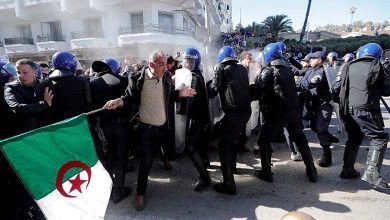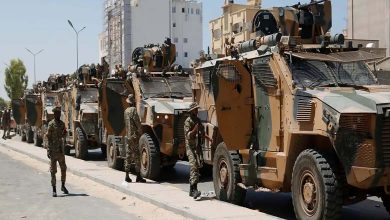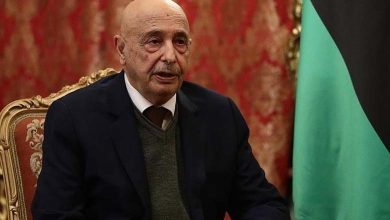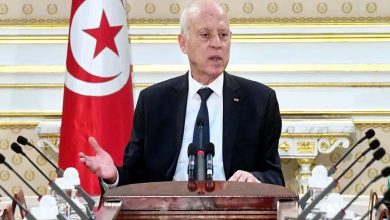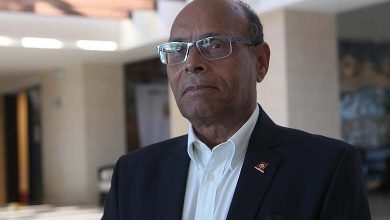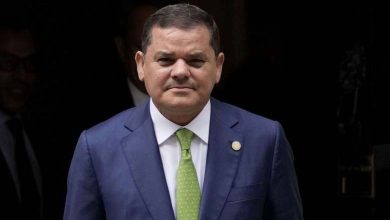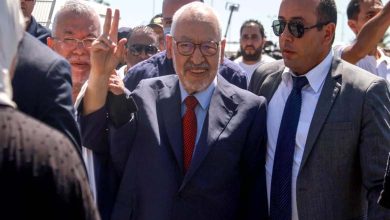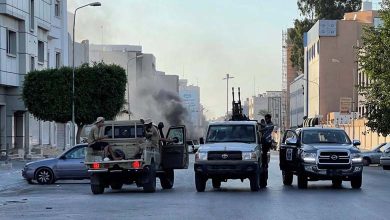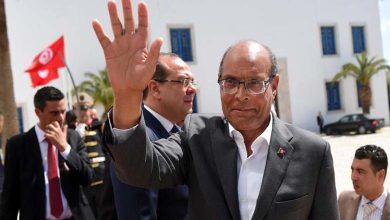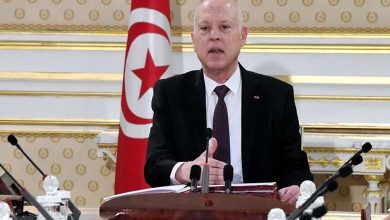Bashagha Stresses Need for Peaceful Entry of Government to Tripoli
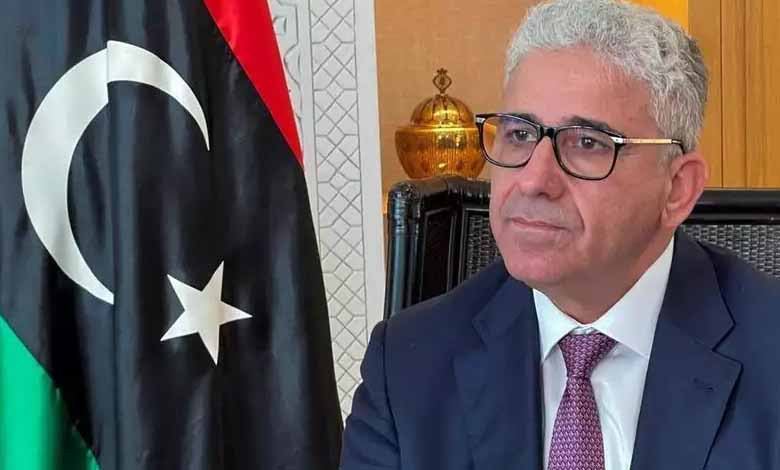
Head of the government appointed by the Libyan parliament Fathi Bashagha has briefed Speaker of the House Counselor Aguila Saleh on the performance of his government since it gained confidence and reached a point, especially regarding its “peaceful entry into the capital Tripoli without bloodshed”.
Saleh made the remarks during a meeting in Qubba with Deputy Prime Ministers Khaled Al-Osta, Salem Al-Zadma, Foreign Minister Hafiz Qadour, Planning and Finance Minister Osama Hammad, and Minister of State for Legislative Authority Affairs Mohammed Abu Zakia, according to Al-Wasat Gate.
According to a statement posted on the House of Representatives Facebook page, Bashagha repeatedly stressed that “entering Tripoli should not lead to war or the shedding of Libyan blood,” stressing that the government should start its work from Benghazi and Sirte in light of the current situation.
The meeting also addressed “providing services to citizens and working on pressing issues related to citizens’ daily lives, in addition to a number of issues related to the government’s work in the upcoming period”.
During Thursday’s session, the House of Representatives passed nine resolutions, the most prominent of which was the obligation for Bashagha to immediately commence work on behalf of the government, and the request for him to present what the government has reached and the obstacles it faces in order to help overcome them, according to a statement by Parliament Spokesperson Abdullah Bliheg.
Bashagha said Monday he would soon announce a plan that focuses on “achieving stability, peace and prosperity… It guarantees our access to simultaneous, free and fair presidential and legislative elections,” he said, adding that he held “fruitful and constructive meetings with friendly and brotherly countries.”
However, upon his arrival in Benghazi on Tuesday, he said that there is a regional and international situation that “does not want the rapprochement of Libyans or reconciliation,” pledging that his government will only consider the interests of the people of Libya, noting that the attempt of the government to operate from Tripoli “failed”, and that it will operate from the cities of Sirte and Benghazi.
In the context of the Libyan crisis, the head of the Libyan Presidential Council, Mohammed el-Menfi, criticized, Wednesday, in a speech at the 77th session of the United Nations General Assembly, what he described as “negative international intervention” by charting paths of contradictory solutions in his country, which led it to the end of armed confrontations.
“Negative international intervention still draws paths of contradictory solutions that push the country into armed confrontations that do not spare the innocent and lead to intransigent political positions that do not accept centrist approaches to bridge the gap and partnership in the homeland,” el-Menfi said.
The first is the government of Fathi Bashagha, which was appointed by the parliament. The second is the government of national unity, headed by Abdul Hamid Dbeibeh, who refuses to hand over power except to a government appointed by a new elected parliament.
“The political conflict turned into armed clashes in Tripoli between pro-Bashagha and pro-Dbeibeh forces at the end of August, killing 32 people, mostly civilians.”
“The individual interests of the countries involved in the Libyan affair, the proxy wars, and the conflicting visions about the solution in Libya did not give the national option the chance to be shaped,” el-Menfi official said.
The President of the Presidential Council revealed that “some political parties (whom he did not name) tried to drag the Council into the political conflict.”
The dialog initiated by the United Nations through an initiative that established a committee of the two houses of parliament to draft a constitutional basis for the elections is slow to take place in the absence of UN mediators Abdoulaye Bathily, who has not yet taken up his duties.
“We look forward to an active role for the United Nations through the new leadership of its mission,” el-Menfi said. “We urge it to start working to support national solutions to the political deadlock in the country, which has opened the way for individual adventures and initiatives.”
“We look positively at the UN’s role in Libya despite the recent slowdown,” he added.
In the same speech, el-Menfi called for “restoring momentum to the economic path in their country, one of the three tracks of the Berlin Conference.”
“That path neglected its outputs in terms of transparency and fairness in managing oil resources, controlling public spending and curbing corruption,” he said.
On January 19, 2020, the Berlin Conference on Libya was held in Germany in the presence of the governments of 16 countries and its organizers. In the presence of the parties involved in the Libyan crisis, they signed a final statement consisting of 55 items for solutions to the Libyan crisis within three political, economic and security tracks.


